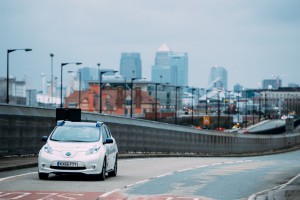
States are beginning to apply taxes to autonomous vehicle to ensure owners pay their share of road maintenance taxes.
As automakers continue to charge ahead on the development of autonomous vehicles, the entities potentially impacted by the vehicles are moving forward in their preparations for these cars.
The state of Massachusetts plans to install a 2.5-cent-per-mile-driven tax on the vehicles.
State legislators believe the most autonomous will be battery-electrics, thus won’t pay any gasoline taxes. So in order to ensure these vehicles pay their share for road maintenance costs, they new tax is necessary, the claim.
They also want to introduce the tax now to avoid any outcry later on when the cars start showing up on roads in large numbers. Other states, such as Oregon, have been on these path for several years, but they were tied exclusively to EVs, not autonomous vehicles.
(Big changes to NAFTA could put big hurt on U.S. consumers. For the story, Click Here.)
Massachusetts isn’t alone in looking to strike early. A similar measure that would establish a 1 cent-per-mile fee for self-driving cars, and a 2.6 cent-per-mile fee for autonomous trucks that have more than two axles has been approved by the state Senate in Tennessee.
Charging car owners directly is one way to handle it but the Eno Center for Transportation, a Washington D.C.-based think tank, has another way to skin that cat: charge the autoamkers.
The plan is that when a vehicle is placed in autonomous mode, the automaker would pay the tax and would recoup those fees by charging you to use the service.
Paul Lewis, vice president of policy and finance for the Eno Center, said the proposal could as much as $300 million per year. The funds could pay for badly road improvements and offset losses in gas tax revenue that will be lost as automakers move toward autonomous and electric cars.
(Click Here for details about Ford’s autonomous car’s steering wheel and pedals.)
“Self-driving cars tend to be very fuel-efficient, and a lot of automakers have talked about how they are going to be all-electric,” Lewis said. “That means they are imposing the same type of wear and tear on roadways without paying into the system.”
Self-driving car supporters are leery of proposals to tax the nascent technology.
“I would say, in terms of usage fees, as a nation we need a strategy for how we fund our infrastructure repairs,” said John Maddox, president and CEO of the American Center for Mobility.
“For autonomous vehicles, I don’t see them as different than any other vehicle in that regard. There’s no difference between an autonomous battery-electric vehicle and a non-autonomous battery electric vehicle.”
(FCA, BMW, Intel, Mobileye team up to jointly develop autonomous vehicles. Click Here for the full story.)
Federal transportation fund comes from the national 18.4-cents-per-gallon gas tax, which amounts to about $34 billion annually. The tax hasn’t been increased since 1993 despite an overwhelming need for additional funding. The government typically spends $50 billion per year on roads.

This is crazy. I can see this tax being added to EV cars to make up for the gasoline taxes they’re not paying but to charge all autonomous vehicles this tax regardless of if they are EV’s or gas vehicles is just insane. These states are just trying to rip people off to get more tax dollars.
Paul Lewis is another leech using the roads as an excuse to steal from hard working people.
What’s next? Charging people to use their AC.
These people in power are idiots!
They take no consideration how hard it is for the middle class to survive and this area of government corruption.
Is it ever going to get better?